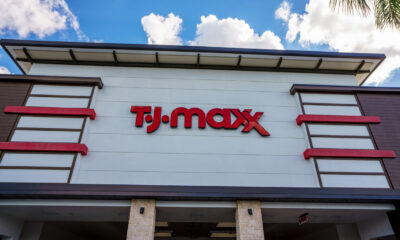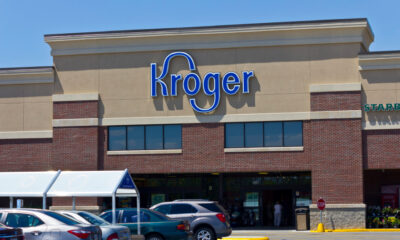A lawsuit filed against Hill’s Pet Nutrition Inc. and other defendants alleges that they “carried out a coordinated scheme to persuade American pet-owners that the grain-free dog food products sold by many Hill’s competitors all increase the risk and severity of a deadly canine heart disease called dilated cardiomyopathy,” according to a news release.
The case was filed on behalf of KetoNatural Pet Foods, a Utah-based pet food startup that manufactures low-carbohydrate dog food products. “The suit alleges that KetoNatural is one of the many smaller pet food brands that were damaged by the false ‘association’ between its products and DCM,” according to a press release from Wolf Haldenstein Adler Freeman & Herz LLP, which filed the proposed class-action litigation.
Reuters reported that KetoNatural “is seeking class-action status for at least several hundred companies.” The $2.6 billion in damages sought would be the largest in the history of the U.S. pet food industry, said Thomas Burt, partner with Wolf Haldenstein.
In addition to Hill’s, which is a subsidiary of Colgate-Palmolive Co., defendants include “a group of academic veterinarians and organizations with financial ties to the company,” according to the release from Wolf Haldenstein. Named in the suit are Hill’s, the Morris Animal Foundation, the Mark Morris Institute and five veterinarians. Colgate-Palmolive has not yet responded publicly to the suit, according to Reuters. We will update this story as we learn more.
The suit, KetoNatural Pet Foods v. Hill’s Pet Nutrition, was filed in the U.S. District Court for the District of Kansas on Feb. 6.
More from the release:
The scheme allegedly involved a wide range of malfeasance committed by the defendants, most notably fraudulently misrepresenting case data about DCM to the United States Food and Drug Administration (“FDA”). The FDA spent more than five years conducting a widely publicized investigation into “a potential association” between grain-free dog foods and DCM, only to suspend further investigation updates last year after announcing that it had not found sufficient data to establish a relationship between DCM and the products under investigation.
The suit alleges that the FDA’s DCM investigation was fraudulently induced by Hill’s-affiliated veterinarians at Tufts University and other major research institutions, all of which have received extensive funding from Hill’s-affiliated entities. The veterinarians allegedly caused the FDA to take drastic action by flooding the agency with hundreds of DCM case reports that were intentionally chosen to overrepresent the commonality of grain-free diets among dogs suffering from the disease.
The FDA’s investigation received major media coverage in 2018 and 2019, sparking a panic over DCM that caused the market for grain-free pet foods to drop by billions of dollars. The suit alleges that Hill’s and its co-conspirators then stoked the panic by making false statements about the scientific evidence surrounding DCM, both to the veterinary community and the general public, as well as by manipulating the language of academic papers, using front organizations to hide undisclosed payments to veterinary researchers, and creating Facebook groups and websites to amplify misinformation and suppress dissent.
According to the lawsuit, this scheme produced a shocking financial windfall for Hill’s, a company that had been steadily losing market share to grain-free competitors in the years preceding the controversy:
In the four years immediately preceding the launch of the FDA’s investigation, Hill’s lost 20% of its market share. In the five years since the investigation began it has been arguably the fastest growing pet food company in the country.
The case was filed on behalf of KetoNatural Pet Foods, a Utah-based petfood startup that specializes in manufacturing low-carbohydrate dog food products. The suit alleges that KetoNatural is one of the many smaller pet food brands that were damaged by the false “association” between its products and DCM. Evidence submitted as part of the new suit shows that many KetoNatural customers stopped feeding the company’s products to their dogs after being told by veterinarians that the products had been shown to raise the risk of canine DCM.
According to Mr. Burt, pet food brands such as KetoNatural are just one of several discrete groups that have been harmed by Hill’s and its co-conspirators. “We know that boutique pet food retailers and pet-owners around the country were also damaged by the false idea that grain-free pet foods increase the risk of canine DCM. As we continue to investigate potential claims against Hill’s and its co-conspirators, we urge anyone who believes they have been harmed by the misconduct described in this suit to contact our offices.”
Source: Wolf Haldenstein Adler Freeman & Herz LLP
Contact: burt@whafh.com
About Wolf Haldenstein:
Founded in 1888, Wolf Haldenstein is among the nation’s leading firms representing consumers, investors and small businesses in consumer protection, antitrust, and securities litigation. For more information, please visit www.whafh.com.
About KetoNatural Pet Foods:
KetoNatural Pet Foods makes foods, treats, and supplements for companion animals, including Ketona, a line of dry dog food products with 90% less dietary carbohydrate and twice as much meat-based protein as foods produced by “traditional” pet food brands. The company was founded by Daniel Schulof, activist and author of the 2016 book Dogs, Dog Food, and Dogma, which has been called “the most rigorous and probing canine nutrition book ever written.” For more information, please visit www.ketonaturalpetfoods.com.
Advertisement

 Headlines2 weeks ago
Headlines2 weeks ago
 Headlines2 weeks ago
Headlines2 weeks ago
 Headlines2 weeks ago
Headlines2 weeks ago
 Headlines2 weeks ago
Headlines2 weeks ago
 Headlines7 days ago
Headlines7 days ago
 Shop! Press Releases2 weeks ago
Shop! Press Releases2 weeks ago
 Headlines2 weeks ago
Headlines2 weeks ago
 Headlines2 weeks ago
Headlines2 weeks ago













